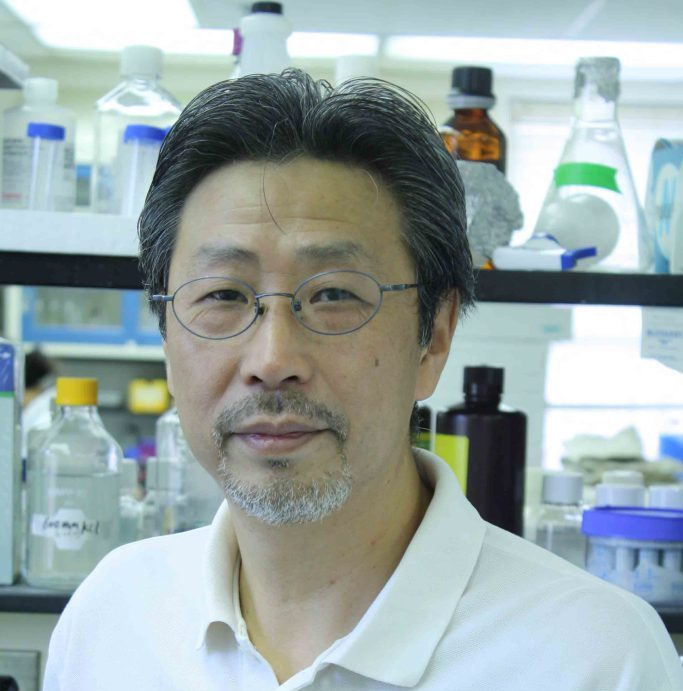
Taixing Cui
Professor of Medical Pharmacology and Physiology
Medical Pharmacology and Physiology,
taixingcui@health.missouri.edu
573-882-3244
Research Emphasis
Our laboratory has a research interest in understanding the nature of cardiovascular adaptive responses as well as maladaptive remodeling and dysfunction in diverse pathological settings. We have focused on the intercellular and interorgan communications in cardiovascular adaptation and maladaptation. We take multi-disciplinary approaches to explore the underlying cellular and molecular atlases and to identify the novel therapeutic targets for cardiovascular disease.
There are four areas of technical strengths in our laboratory: 1) Conventional and inducible cardiovascular tissue-restricted genetic manipulation in vivo; 2) Genetic inducible fate mapping of endothelial cells, vascular smooth muscle cells, adventitial fibroblasts, and resident cardiovascular stem cells in vivo; 3) Cardiovascular physiology analyses in cell, organ and whole animal levels; 4) Conventional and high throughput analyses such as single cell or nuclear RNA sequencing (scRNA-seq or snRNA-seq) and Special Transcriptomics (ST) analyses in vitro and in vivo.
Research Interests
- To identify novel cellular sources and molecular switches of vascular lesion formation, repair, and regeneration
- To identify novel regulators of cardiac protein quality control
- To identify novel interorgan communications between the heart and adipose tissues
- To identify novel energy transformations in cardiovascular mechanotransduction
Education
- PhD 2001, Ehime University School of Medicine, Japan
- MD 1989, The Fourth Military Medical University, P. R. China
Selected Publications
Wu W, Hendrix A, Nair S, Cui T. Nrf2-mediated dichotomy in the vascular system: Mechanistic and therapeutic perspective. Cells. 2022, 11(19), 3042
Wu W, Qin Q, Ding Y, Li DS, Nagarkatti M, Nagarkatti P, Wang W, Wang X, Cui T. Autophagy controls Nrf2-mediated dichotomy in pressure overloaded hearts. Front Physiol. 2021 May 13:12:673145
Zang H, Wu W, Qi L, Wenbin Tan, Nagarkatti M, Nagarkatti P, Wang X, Cui T. Autophagy inhibition enables Nrf2 to exaggerate the progression of diabetic cardiomyopathy in mice. Diabetes. 2020 Dec;69(12):2720-2734
Zang H, Mathew RO, Cui T. The dark side of Nrf2 in the heart. Front Physiol. 2020 Jul 9;11:722.
Qi L, Zang H, Wu W, Nagarkatti P, Nagarkatti M, Liu Q, Robbins J, Wang X, Cui T. CYLD exaggerates pressure overload-induced cardiomyopathy via suppressing autolysosome efflux in cardiomyocytes. J Mol Cell Cardiol. 2020 Jun 14;145:59-73.
Wu W, Wang C, Zang H, Qi L, Azhar M, Nagarkatti M, Nagarkatti P, Cai G, Weiser-Evans MCM, Cui T. Mature vascular smooth muscle cells, but not endothelial cells, serve as the major cellular source of intimal hyperplasia in vein grafts. Arterioscler Thromb Vasc Biol. 2020 Aug;40(8):1870-1890.
Li KC, Wang CH, Zou JJ, Qu C, Wang XL, Tian XS, Liu HW, Cui T. Loss of Atg7 in endothelia cells enhanced cutaneous wound healing in a mouse model. J Surg Res. 2020, 249:145-155
Wang X, Cui T. Autophagy modulation—A potential therapeutic approach in cardiac hypertrophy. Am J Physiol Heart Circ Physiol. 2017 Aug 1;313(2):H304-H319.
Qin Q, Qu C, Niu T, Zang H, Lyu L, Wang X, Nagarkatti M, Nagarkatti P, Janicki JS, Wang XL, Cui T. Nrf2-mediated cardiac maladaptive remodeling and dysfunction in a setting of autophagy insufficiency. Hypertension. 2016 Jan;67(1):107-17.
Lyu L, Wang H, Li B, Qin Q, Qi L, Janicki JS, Nagarkatti M, Nagarkatti P, Janicki JS, Wang XL, Cui T. A critical role of cardiac fibroblast-derived exosomes in activating renin angiotensin system in cardiomyocytes. J Mol Cell Cardiol. 2015 Dec;89 (Pt B):268-79.
